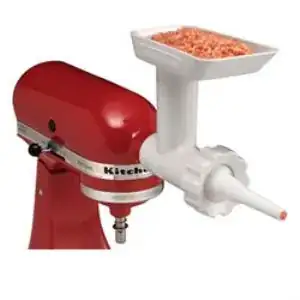I don't know about "tools" but I think you're using the wrong paper.
I love parchment paper for some things but this is not an optimal use of it.
You should be using plastic wrap, which is much more similar to the plastic used to hold the tubes of dough. Parchment paper is too rigid to shape the ends of the log without odd creases.
Plastic wrap is strong enough to hold the shape but much more flexible, and it's much easier to work with (if you can keep it from sticking to itself). It's also easy to tie the ends in knots or close them up with twist-ties. Plus, it's more airtight than parchment.
The process I recommend is that you take your dough and pretend it's Play-doh - make it into a tube-shape by hand that is about the diameter you want your cookies - if you want them to be analogous to the Pillsbury ones, aim for about 2 to 2-1/2 inches - and about 10 inches long (make sure it's about 4 inches shorter than your plastic wrap is wide.
Then, take a piece of plastic wrap that is long enough to go all the way around your dough with a decent amount of overlap, put the cookie dough at one edge and roll until the plastic is sealed around it.
Tie up the ends however you like.
When you want to use the dough, open one end and peel it back like a banana, cut your slices, then you should be able to revert the plastic wrap and tie it off at the new cut end.

